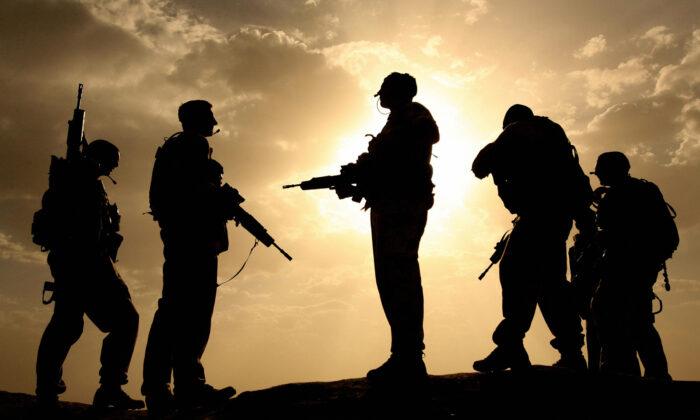The chairman of an independent inquiry looking into allegations Britain’s elite Special Air Service (SAS) carried out “massacres” of young men during night raids in Afghanistan has described delays in providing evidence as “extremely troubling.”
Last month the chairman of the inquiry, Sir Charles Haddon-Cave, complained to the Ministry of Defence (MOD) about the “unacceptable” delays in providing evidence for the third and final stage of the inquiry.
She said the government had already spent over £6 million on the inquiry so far and had 80 MOD people working solely on providing evidence, and was “pursuing multiple strategies to increase its resourcing as quickly as possible.”
MOD Criticises Lack of ‘Memory-Refreshing Documents’
In an apparent criticism of the inquiry, she also said, “Requests for evidence from individuals are not accompanied by any supporting or memory-refreshing documents, despite witnesses often being asked about events many years ago.”On Friday, at a hearing at the Royal Courts of Justice in London, Sir Charles said, “The revelation that the MOD now expect to delay the DDO phase three inquiry timetable by at least six months is extremely troubling.”
He said did not want to “detract from the hard work” of the existing MOD legal and disclosure teams, who had helped with the smooth working of the first two phases of the inquiry, which have now concluded.
But he said, “However, the fact that the existing MOD teams were struggling to cope with the volume of work, and the pace of the inquiry, has unfortunately been evident for a long time.”
The independent statutory inquiry was commissioned by Defence Secretary Ben Wallace following a series of legal challenges from solicitors representing two Afghan families and investigations by The Sunday Times and the BBC’s “Panorama” programme.
The Saifullah and Noorzai families brought judicial review proceedings against the Ministry of Defence in 2019 and 2020, which challenged the MOD’s alleged failure to properly investigate the deaths.

‘Public Interest’ in Inquiry Moving ‘At Pace’
Richard Hermer, KC, representing the Afghan families, said there was a “public interest” in the inquiry moving “at pace.”He said of the government letter, “It appears to have come as something of a surprise to the Ministry of Defence that the work they are required to do is so extensive.”
Mr. Hermer told Sir Charles, “It is difficult to understand why it is only now that the penny is said to have dropped in the MOD about the requirement of the personnel to comply with orders from you.”
He went on to add that Mr. Justice Swift, when conducting a judicial review into the case, had described the MOD as having a “cavalier attitude” to disclosure and compliance with orders from the court.
Mr. Hermer said the inquiry would have to decide if there were credible allegations of “murder and cover-up” and he added, “If those allegations are shown to be well-founded then it will be imperative that prosecuting authorities are able to look at this matter and where appropriate to prosecute.”

Mercer Told to Name Names
In February veterans minister Johnny Mercer—who became a Conservative MP in 2015 after leaving the British Army the previous year—gave evidence to the inquiry.He said several serving officers came to see him and made “serious allegations” about the actions of certain special forces in Afghanistan after he began a campaign against lawyers who were bringing what he believed was “vexatious litigation” against the armed forces and veterans.
Mr. Mercer said the officers were worried he would be left “out on a limb” and looking “foolish” if he insisted all the claims were untrue.
Mr. Mercer has now been given until 4 p.m. on May 8 to provide a witness statement containing the names or face a potential prison sentence.







